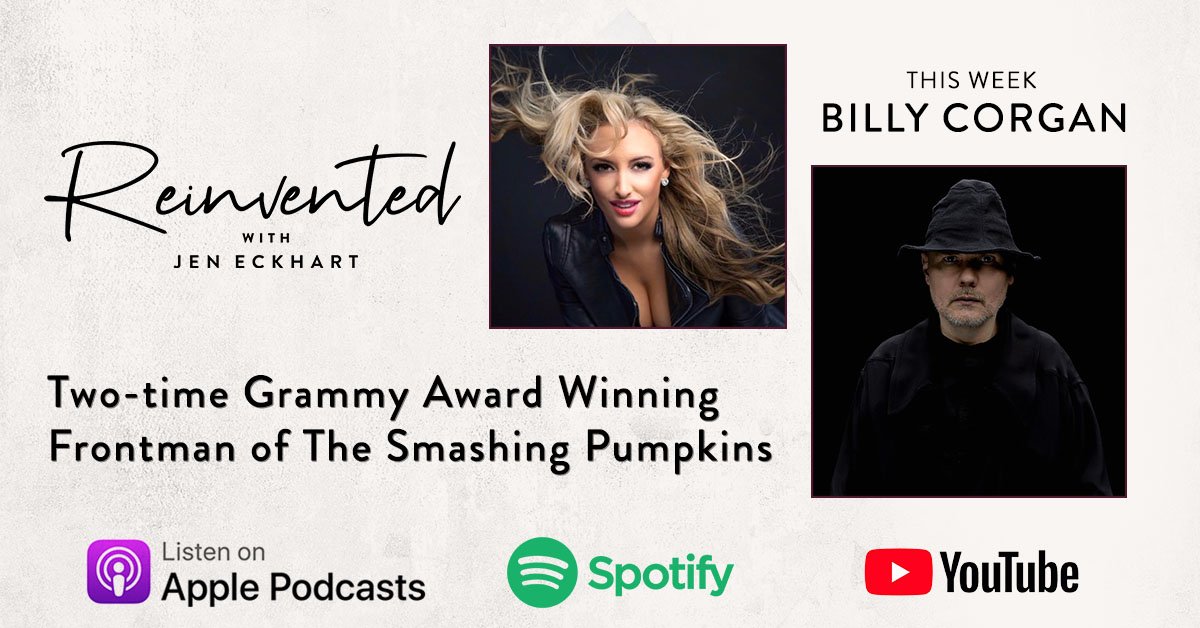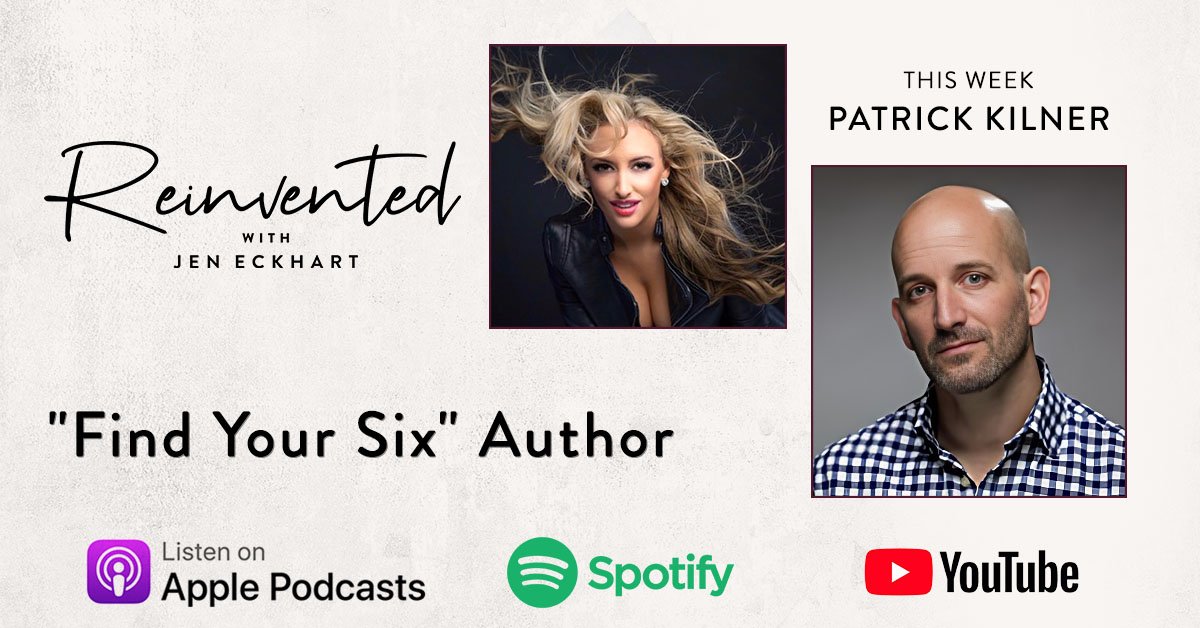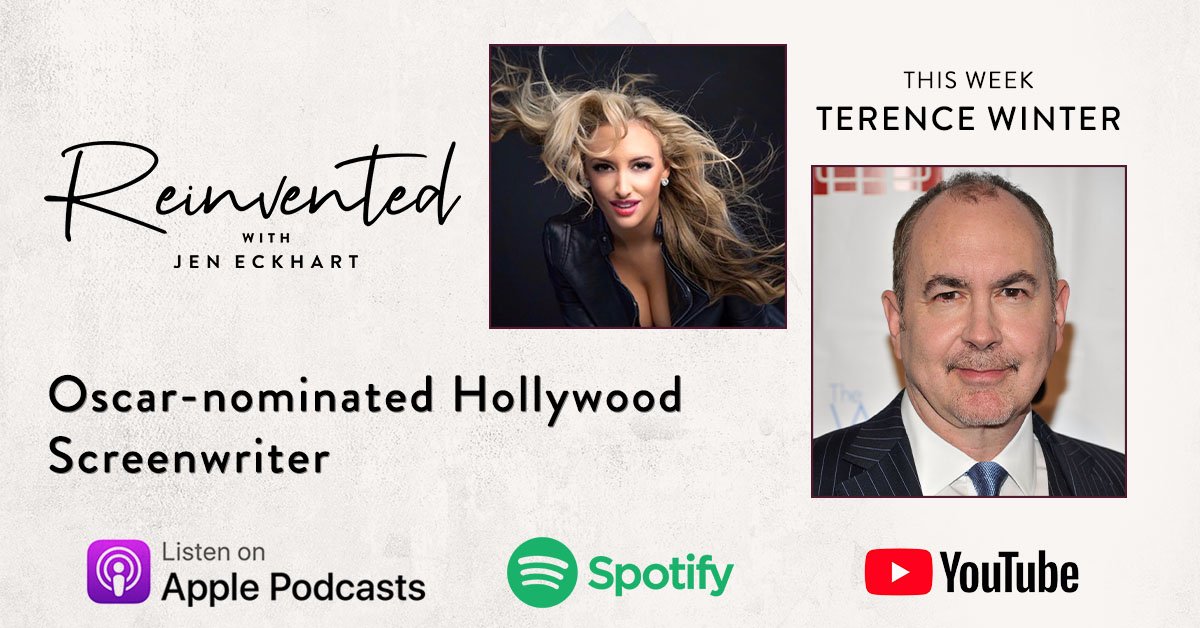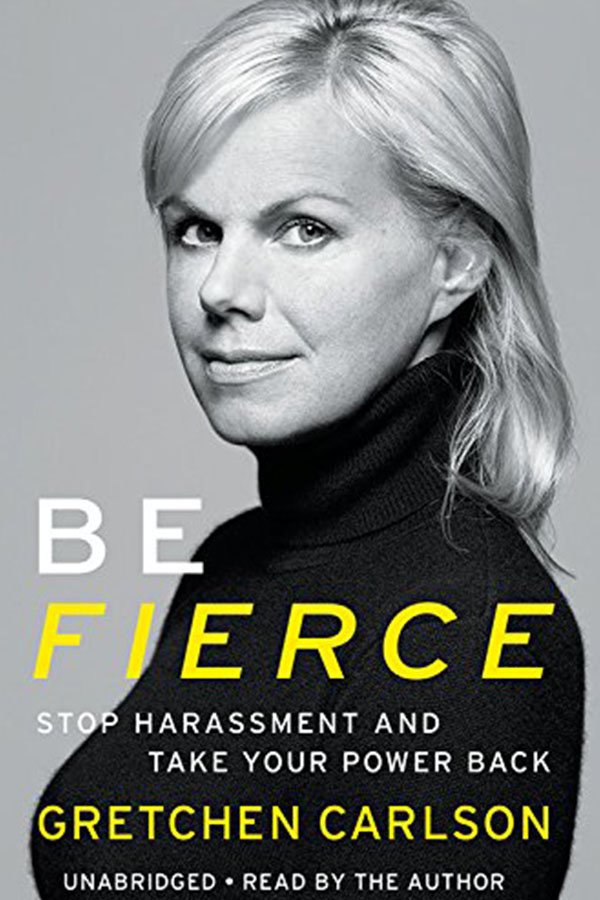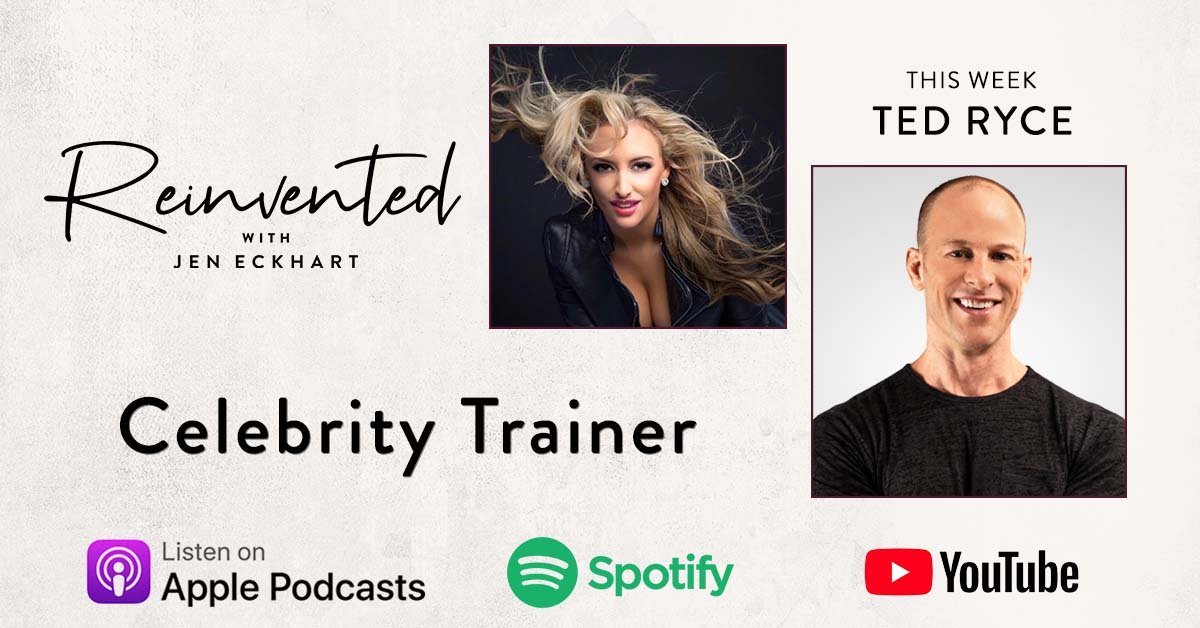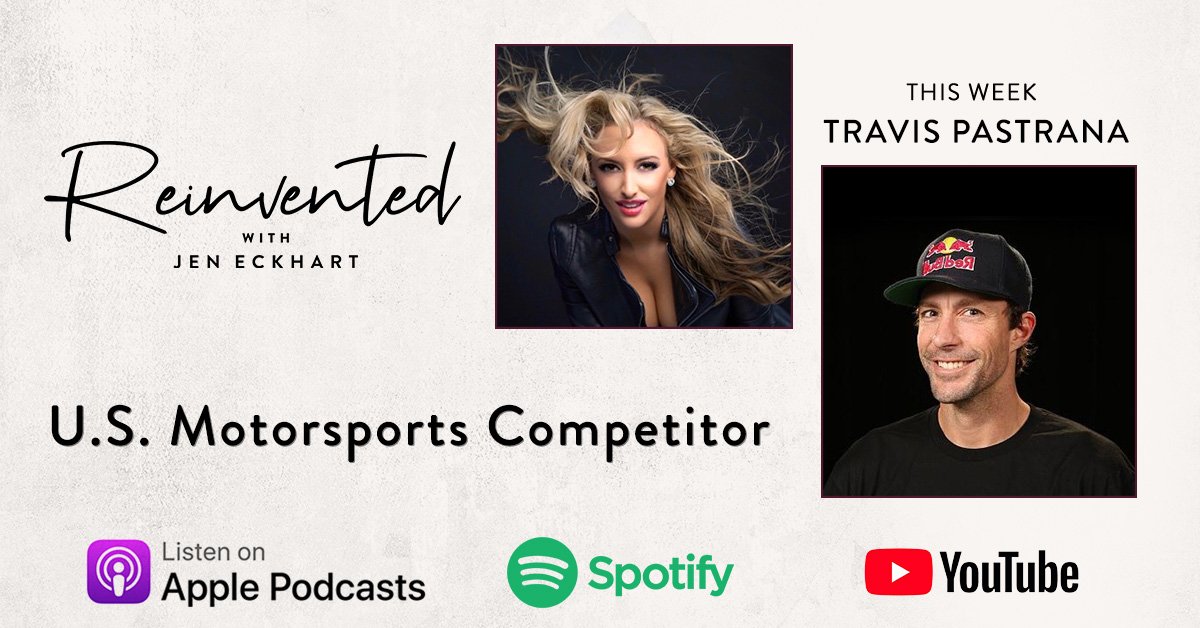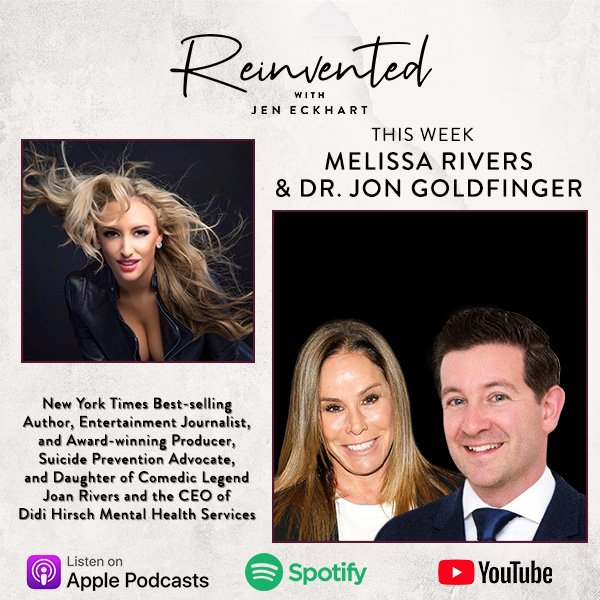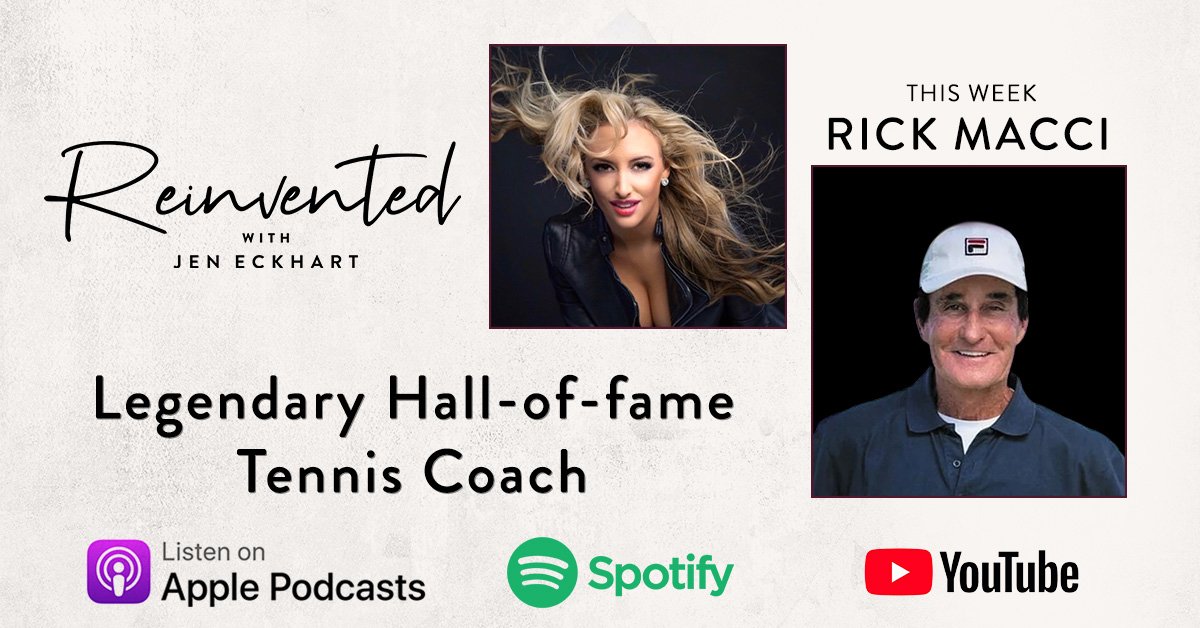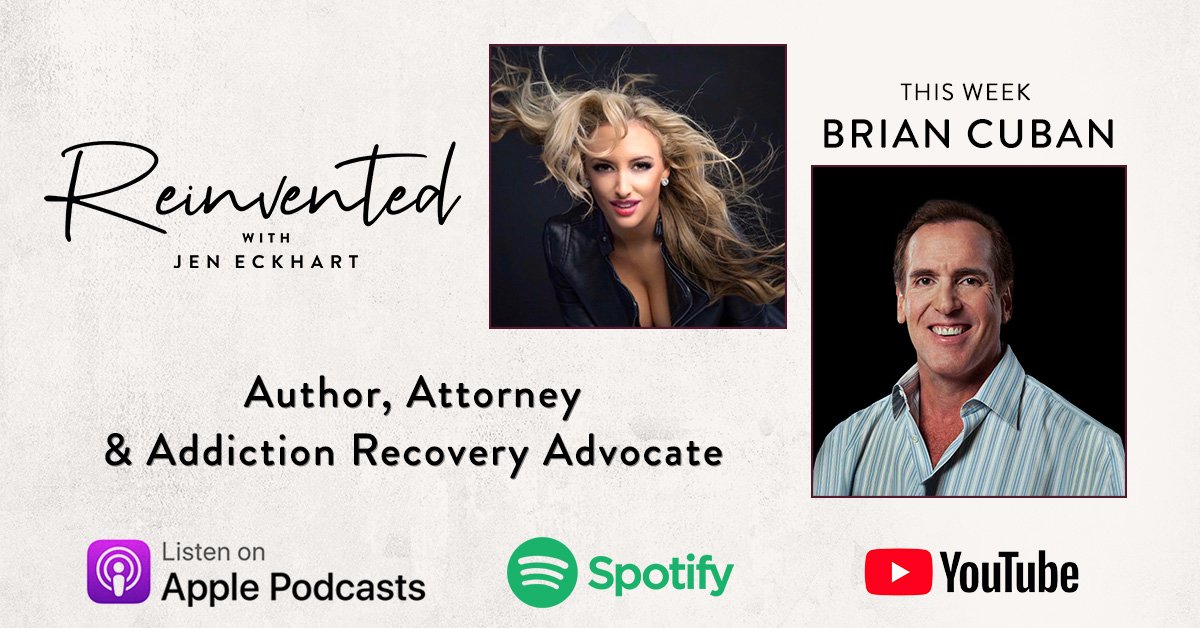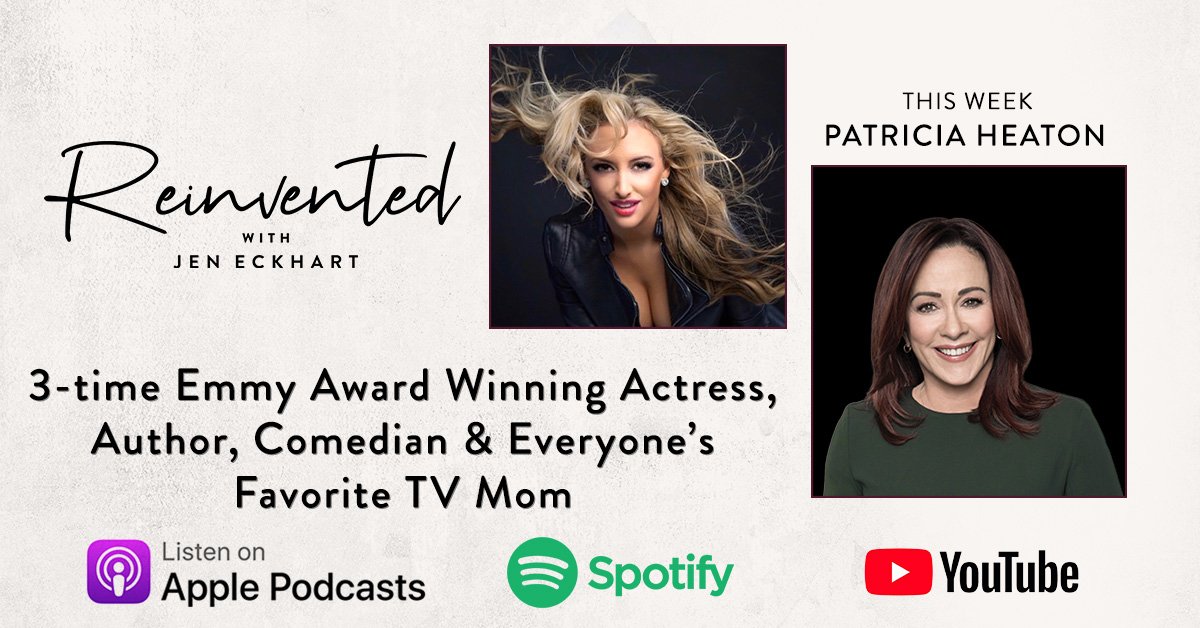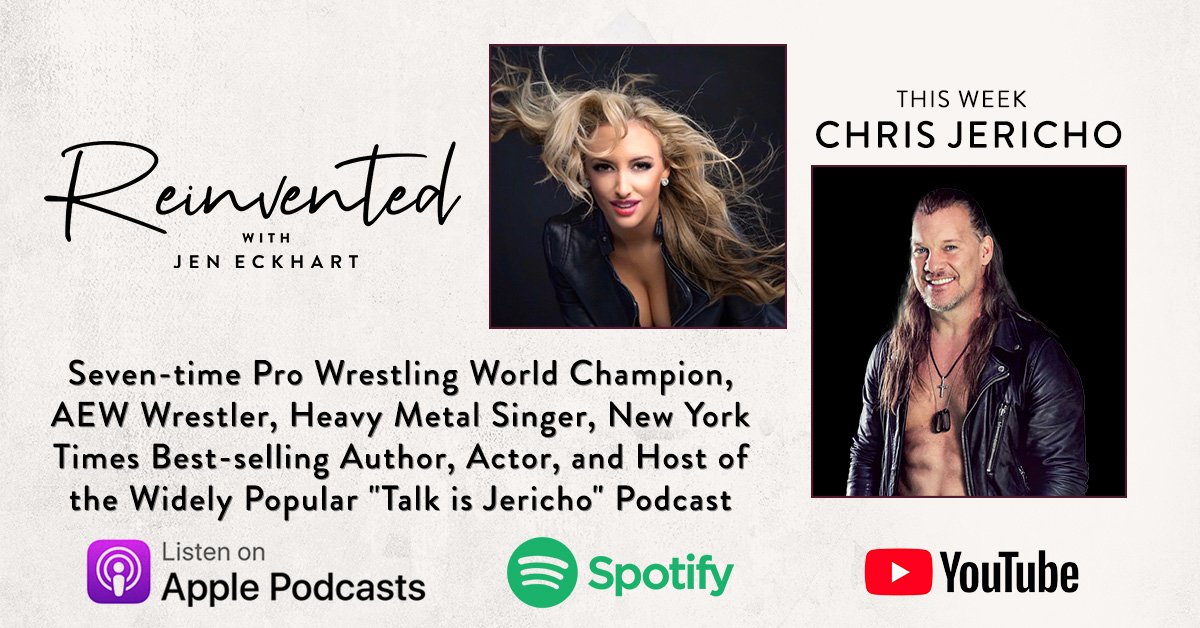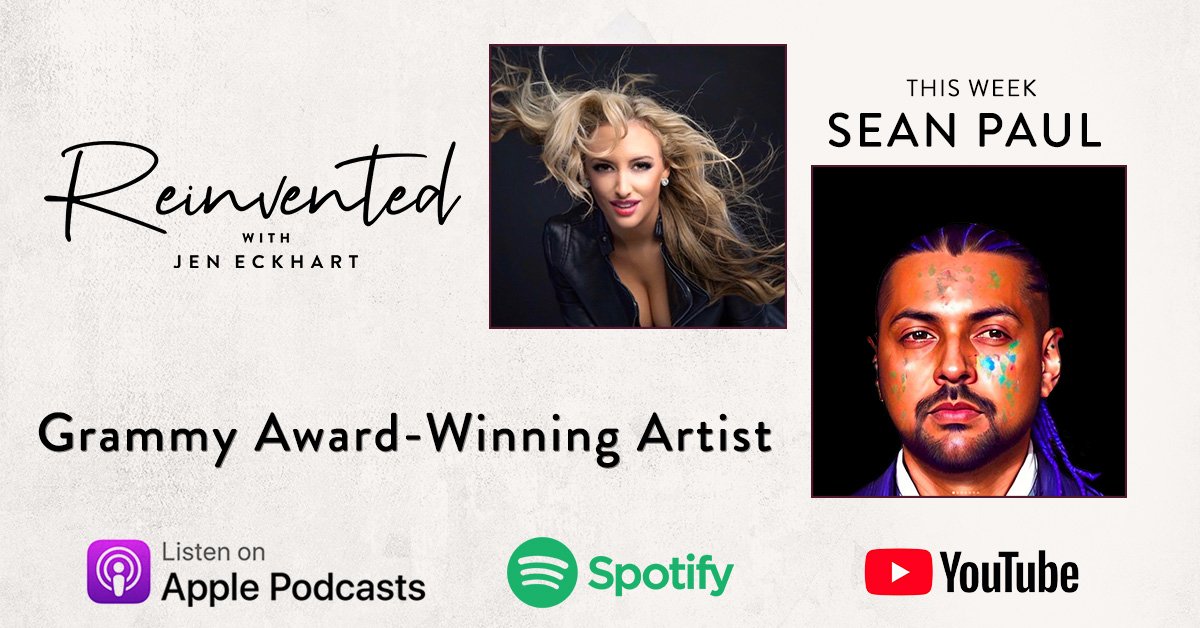TODAY IS THE GREATEST DAY -- because Jen sits down with a two-time Grammy award-winning frontman of one of the most influential bands of all time, The Smashing Pumpkins! Despite all his rage, William Patrick Corgan has sold 30 million albums worldwide, and is currently selling out arenas in the U.S. for his “Spirits on Fire” tour.
On this week’s episode of REINVENTED, Jen Eckhart and Billy Corgan discuss the self-made musician's influence in shaping the culture of the ‘90s alternative rock movement, as well as his friendly rivalry with Nirvana’s Kurt Cobain. Jen also asks 'what Billy Corgan today would tell Billy Corgan in his 20s,' including how he paved the way for outliers, misfits and weirdos to be considered “cool.” They also get into his late father’s addiction to heroin, growing up in an abusive household, and how he has managed to stay sober and motivated over the years to keep reinventing himself as an artist.
The dynamic duo also take a deep dive into his brand new podcast “Thirty-Three,” and how he stuck it to the naysayers with the upcoming release of his 3-part rock opera album called “ATUM,” his Christian faith and how he balances being a touring rockstar and a dad to two young children. Jen also puts Billy Corgan on the spot in a hilarious rapid-fire round of questioning -- which includes an epic argument over Chicago Deep Dish pizza vs. Jen's beloved New York Pizza!
Don't forget to rate, review and subscribe to REINVENTED with Jen Eckhart on Spotify, Apple Podcasts, iHeartRadio, and YouTube. You can also follow @JenniferEckhart on all social media platforms. Thanks for listening & ROCK ON!
—
Listen to the podcast here
REINVENTED With Billy Corgan Of The Smashing Pumpkins
JE: If you are a fan of this show and have been following along since its inception, you might have heard me share that I'm a huge fan of the '90s alternative rock era. Some people say never meet your heroes in life, but I say invite them on your show. I have interviewed lots of public figures and celebs over the years, and I always tell myself the same thing, “Jen, be cool. Play it cool. Don't be a fan girl. Don't be that weird girl,” but I'm afraid I have to let my fan freak girl flag fly for a second because someone is on the show who I have considered not a hero-like figure to me, but someone who's quite literally played a central role in shaping the culture of the 1990s. It’s selling out arenas nationwide on his Spirits On Fire Tour. William Patrick Corgan is a two-time Grammy award-winning frontman of one of the most influential bands of all time, The Smashing Pumpkins, having sold 30 million albums worldwide. Billy Corgan, welcome to the show.
BC: Thank you, Jen.
JE: Can I call you friend? I feel like we are friends. We have gotten to know each other a little bit after our mutual pal, Chris Jericho, introed to us.
BC: I don't have many friends, but I would consider you a friend.
JE: I'm honored for the title. Keep your circle small they say.
BC: What is the saying? Keep your friends close and your enemies closer.
JE: Love your enemies.
BC: You are not quite an enemy yet, but you are in the friend zone.
JE: Not yet. I'm in the friend zone. I will listen. I will take it. Billy, I wanted to have you on the show, not because I'm a huge fan of your music. That's obvious, but because to me you personify everything this show stands for. You exemplify what it means to constantly reinvent yourself as a person and as an artist. How have you stayed motivated over the years to keep creating and reinventing?
BC: It starts with a spiritual precept. If you believe in a material God, which many people do, then ambition i.e. achieving the most of your career, which can be a dirty word in alternative music. That would be the thing. You want to sell the most tickets, you want to sell the most records, and you want to be on the most magazine covers get the most clicks.
If you believe in a spiritual perspective or a spiritual God, which is what I operate from, then your purpose is slightly different. Your purpose is more predicated on the idea of why you serve your own journey, which of course, in turn has a material construct within it. Why you serve your own journey. Are you serving God? Are you serving God's purpose for you or is your purpose of God?
As someone once told me, your purpose is God's purpose. There is no delineation point. If you serve your purpose, you are serving God's purpose. I believe I'm serving God's purpose by trying to find some strange balance between my own spiritual and personal progress. Juxtaposed a vapid, hollow, shallow, and increasingly cold world as far as it pertains to the individual right of a human being, trying to balance all those things.
“My progress or reinvention” to use the parlance of your show has everything to do with believing that my progress as a human being has everything to do with my progress as an artist and, as a spiritual, a devotee of Christ. That's very convoluted for most people to understand so I will keep it simple, and I don't mean this to be pedantic because sometimes people get lost in the spiritual “component.” I want to be a good person.
Being a good artist is being a good person and being a good person should make you a good artist. Being a plasticine rock star or pop star, there are plenty of those. It never ceases to shock me how people want to turn me into something A) That I'm not, but B) Also something which there's already plenty of stock of on the shelves. They are certainly prettier than I am. Their voices are nicer than I am.
Being a good artist is being a good person, and being a good person should make you a good artist.
What I'm saying is it's very strange to be successful as an outlier, and then when you come up against the system of man, and I say that pejoratively. They want to change you into something that you are not. The reason you are at the dance is because of your outlier status. Somehow in there is a consistent philosophy for reinvention.
JE: For those who don't know, you did touch on your faith. You are a Christian. I don't think a lot of people, particularly those in the media question you about your faith. That's why I think of you as this unicorn in Hollywood and that you don't usually hear of church going rock stars who also threw LSD parties back in the '90s. At what point in your life did you realize that your faith had to be a top priority in your life?
BC: As far as the media and my faith, the media looks for things to poke at you about and for whatever reason, they have not been able to poke at me about my faith because I don't think there's anything to poke. My faith believes in everyone. I believe every soul is equal. I don't believe in the supreme God. I believe in one God that unifies us all, and I'm not even opposed or even have any grumpy feelings about people who believe other things other than I do.
I don't believe God as I believe in God is petty, and it wouldn't surprise me if God set up 100,000 religions to draw everyone into the center of what is the very simple argument, which is love is the supreme force in the universe. I have certainly been blessed by love, particularly now in my life with my family.
I walked away from the church when I was eight years old. I used to go with my stepmother who was a Roman Catholic and go sit through those endless Latin masses. Which were cool in a Wagnerian way, but outside of that, I was bored out of my mind. I would sit there and look at Jesus on the cross and say, “I'm not sure how this works out where this is a good thing that he ends up on the cross.” That took me a while to sort that thing out.
I didn't come back to God probably until my late-20s, early-30s when I hit a point of spiritual crisis. I was suicidal. I was wildly successful at a very young age, and I didn't know what to do with myself because I was miserable. I was in a terrible relationship. We all know what that feels like. I found the one thing that wouldn't abandon me which was God in very loose quotations, “What is God and how do I fit into this picture?”
Thus began a very long spiritual journey which I realize now started in my childhood, but I didn't know that's what it was. When I had those quiet moments, I had a very abusive home. When I had those quiet moments in a forest preserve listening to the rustling leaves and the wind through the trees and feeling something greater than myself, I didn't realize I was in touch with God. I thought I was having a little moment, which I couldn't share with anybody because I assumed that nobody around me was having that moment.
It started to quantify into something concrete in my late-20s, early-30s, but I went down a very heady path of a spiritualist, cultists, astrologer, and psychics, which I still love. I don't have anything negative to say. That became part of my journey, and then eventually around itself around into something which I would say most is aligned with agnostic Christianity.
Again, I'm funny in this particular way. Like if you believe in avatar which is a little bit more impersonal way to say it. Deity or you know Christ-like figure. Whatever you believe in, I'm cool with it. It doesn't surprise me in any way that God would litter the world with people to follow that would point you, “Go this direction.” I see Jesus Christ as a supreme teacher. As somebody who wants always to be a student, and I don't know why you wouldn't go sit yourself at the feet as someone, whether it be Buddha, Jesus, or Gandhi where we can learn something about love and compassion.
JE: As a rock star reaching the fame status that you are at, I do think it's very rare that you are outspoken about your faith and that you are unapologetically Christian. That's very rare in this society. Kudos to you.
BC: I won't swear on your show, so I will say it.
JE: We can swear. We welcome swearing. Don't worry.
BC: No, I don't want to swear. I have my own podcast now. There's a plug. I try not to swear on my own podcast and when I do, I get mad at myself. To answer what you said, I don't give a hoot what people think. It’s strange. There's the defiant teen version of crossing your arms. I don't care and then there's the adult version, which is I don't care. I don't care what people think as far as my spirituality goes.
I think spirituality is there's certainly through the years, whether it's Dark Night of the Soul or other enlightened texts. There's a sensual aspect to divinity, and talking about your spirituality in open terms is like talking about your sexuality in open terms. There's a very personal nature and I don't think it's my business what anybody does in their bedroom any less than they have any business what goes on between me and God in my head or heart.
JE: You did mention your show. I have always said on this show, “Reinvention is the key to living a truly fulfilling and authentic life.” A comfort zone is a nice place. It's a beautiful place, but nothing ever grows from there. Speaking of stepping out of comfort zones, for those who don't know, he said it. Billy is not a two-time Grammy award-winning rockstar, but he's now a fellow show host like me. Every Tom, Dick, and Harry out there has a microphone in a podcast show. It feels like all the cool kids are doing it. What took you so long?
BC: I was recruited by someone in the podcast thing. Agent World a few years ago who said, “I think you can do this.” I said, “No, I don't want to do it.” A year later they cycled back and said, “Are you sure?” I thought, “It might be something there for me as far as how to market.” I saw a lot of my own records these days. I have created my own media you could call it. I'm very comfortable with selling my own music and selling myself through my own channels as opposed to always going begging through somebody else's gatekeeping to quantify or qualify what my value is as an artist, which is weird because after 34 years you think you would have graduated.
Here I am in front of some reporter who's still basically telling me what I have done hasn't amounted to a hill of beans to use the old term. It's interesting to me to be able to use the media podcasting to tell your own story, which is what I like about what you are doing. It's important that everybody have a seat at the table as far as a voice, and if podcasting is a way to create your own media by which to share your own vision of the world, I have no problem with that.
The Smashing Pumpkins: It's important that everybody have a seat at the table as far as a voice. If podcasting is a way to create your own media to share your vision of the world, there is no problem with it.
JE: I have to say having been a national TV journalist at the at a corporate network, not having the corporate overlords breathe down your neck and tell you who you can and cannot interview and which questions you can't. You have to steer away from has also been nice for me.
BC: Let me go a step further than you on that regard. What's even more interesting, and both of us have been behind the wizard’s curtain at the highest levels of media. A lot of times they don't have to tell you what you can and can't say. You just know. The lines are implied.
JE: We are not going to talk about Donald Trump. I thought that was the whole basis for this episode.
BC: I love it and you see it a lot more so in governmental systems. People don't need to get a memo telling them, “This is how it goes.” They just know. They put their finger in the wind and they can feel, “I could talk about this. I can't talk about that.” I'm sure you've had plenty of private conversations as I have with figures in the media behind the scenes where they tell you what they think and what they know.
There was that shocking bit of video. I think it was an ABC news anchor who was on camera, but they were in a commercial break and she spilled the beans about knowing something super intense and somebody leaked the tape, and it was a total what show, because there was a candid moment from someone at the highest levels in media basically admitting that. I think it was ABC or somebody had squashed the story.
JE: It was Amy Robach on ABC, and it was about Jeffrey Epstein.
BC: That's right, and the anchor was very angry because they had a hot story, which was in essence a pursuit of the truth, and the network was like, “We are not going to run that.”
JE: Don't you love how that happens? Interesting how that works. The name of your podcast, which is amazing by the way, is called Thirty-Three, which is an ode to Billy's brand new three act rock opera for an album called Autumn, which is set to be fully released in April of 2023. That's something I haven't heard before. Correct me if I'm wrong, but you are one of the first ever musical artists, at least that I know of, who is slowly trickling out songs from your new album one by one via your new podcast, which is so brilliant to me. What inspired your decision to do that?
BC: One, I'm pretty much in the modern world. Dumping 33 songs on anybody's head and expecting them to pay any attention when their phone is going off every five seconds is a recipe for disaster. I thought a longer arc on revealing the music, a little bit of mystery in the thing, and telling the story behind the rock hopper would be cool. It would work that way.
Secondarily, I was in business with some people who I'm not in business with now, who thought the entire thing was a terrible idea. The 33-song musical, the podcast that would go with, they thought it was all a terrible idea. In essence, stick to what you do well, which is a ten-song rock and roll album. I kept saying my quote in one of those meetings was, “I knew it was a bad idea when I started.” Let's speak to the spiritual heart because I know it's more interesting for your audience, at least I think so.
As something seems like a bad idea to everyone else doesn't mean it's a bad idea. When I started the band, people told me it was a bad idea. When I came with a name The Smashing Pumpkins, people told me it's a bad idea. People told me we could never make it out of Chicago. I got 1,000 of those stories, and so does everybody else.
Listening to everybody else's opinion, it has a value, but it doesn't speak if you know you are on a particular path. The path on this was I want to release this big body of work. I'm not 25 anymore. I don't know how many more of these I have left in me. Making one of these is like making a major movie for me. It takes a long time. It was 2 years of work and 4 years in conception. It's a bad poker analogy. You put all your chips in it. It is what it is.
JE: You bet on yourself and it paid off.
BC: Imagine making one of the biggest double albums of all time or one of the biggest albums of all time. An album that went diamond, only 26 or 27 albums have ever gone diamond. Melancholy is one of them. That was a double record concept record of over two hours of music. Here I am many years later and I have somebody in a boardroom telling me this is a terrible idea, and I'm like, “That's what they said back then,” when I was young and I had everything to lose. I bet on myself and my band and we won. This is weird stuff but that's the inside baseball of how the world operates. Doubt first trust later after you've proven something.
Doubt first. Trust later after you've proven something.
JE: I had an executive over at my former workplace tell me, “You don't know how to use a microphone.” Here I am on a microphone hosting my own show.
BC: What does that mean?
JE: Doing a standup interviewing people like I wasn't holding the microphone the correct way.
BC: Lovingly or is there an art to this?
JE: I’ve got to stroke the microphone. I'm going to ship him a box of microphones for spite just because I can. What do you think?
BC: This might be overly stating the case, but symbolically here. If you kiss every microphone, so every microphone has your lip prints on it, it sends a double message.
JE: The Thirty-Three album is a genius idea. What I love about your podcast concept is that it not only gives fans something to look forward to, but you tell the story behind the song and even share the meaning and inspiration behind other classic songs of yours. I’m curious though what happens when Thirty-Three podcast episodes are completed? Is that the end of the podcast?
BC: I'm toying with the idea of becoming a professional podcaster. That seems so strange.
JE: Are you going to add that to your resume?
BC: I'm interested in a lot of things that I never talk about publicly because the people who talk to me in public aren't interested in those things with me. I'm very interested in history, and I'm certainly interested in the history of music. There are a lot of incredibly significant musical artists that get no love from the modern world because some hipster critic decided they are not valuable, but musicians, if you talk to musicians, they have a very different perspective of who's valuable in the music community.
I'm talking historically. For example, and I'm you off the top of my head, people will name check. Louis Armstrong is one of the first musical genius of the 21st century that accolade was late in coming but's an established thing. Now he's probably the first true musical genius of the 21st century and launched what we would now know is jazz in CIRCA 1928.
I'm probably getting my history wrong, but he worked for a guy named King Oliver, if I'm wrong, sorry, whoever is a jazz but I'm pretty sure he worked for a guy named King Oliver. You could make an argument that King Oliver is almost as important as Louis Armstrong because King Oliver set the stage for Louis Armstrong and was part of what was became progressive music coming out of New Orleans.
A deep dive on King Oliver would be interesting to me. I'm getting a music historian talking about those types of things with a perspective that somebody who has an hour on a workout or something. We'd walk away and think, “I want to listen to King Oliver now.” That would be like something I would be interested in turning people on to things in a deeper dive way. Whether or not there's a business model there. We'll find out. I can always talk about myself that is a fungible thing.
JE: Come on. People love Billy Corgan.
BC: I have 400 songs. Once we get to 400 podcast, we’re out of songs.
JE: I was going to say, do you make a 44-song album next then and release 44 podcast out? You could keep this trend going.
BC: I have no concept albums for a while. I need a break.
JE: Your single, which is such a banger, is my anthem right now. It's called Beguiled. If it's okay with you, I want show a little bit of your song for my readers.
BC: “So swallow hard the serpent of many tags and faces hid in masks. Coiled 'round this lung until the last. He'll crack your boots, young pagans because like you, I was hatched to traipse on cold, and seventeen's a long-drawn way from hope. I've learned these lessons I was taught, taught, so taught, and now I'm telling you return the faith. Return the faith. They're smashing out the veils return the faith. There's no escape so return the faith with charging light brigades return the faith. You've got to move.”
JE: For those who haven't seen the music video of this awesome song, it was filmed live on TikTok in one take, which is wild to me. What was that experience like?
BC: I remember it was Live to TikTok. The one take was the take. There wasn't like we did a take and then we picked the best take.
JE: No do-overs.
BC: It was wild because we had hired this guy to help, and then he didn't do what he'd been hired to do. With about two weeks to go before the video, I was like, “We’ve got to pull this thing. It's not going to work,” and then our dear friend, Linda Strawberry, stepped in and pulled it together halfway.
JE: Linda Strawberry. Her last name is Strawberry.
BC: Her real name is Roe Barry, but I named her Strawberry years ago on stage at the Pumpkin's last concert, December 2nd, 2000 in Chicago, and she's now legally Linda Strawberry. She’s a dear friend of mine from Salt Lake. Anyway, so Linda stepped in. If you see the New Pumpkins tour, Linda did a lot of the visuals behind the band. Linda stepped in and pulled a TAF together, but when I arrived to the set that day, about five hours before the shoot itself, imagine I have got like a bunch of ballerinas, my kids in costume, Frank Catalano who's a famous saxophone player, plays jazz with Jimmy.
I have got the mayor of Highland Park's husband dressed as Abe Lincoln blinking. Everyone's standing there look at me like, “What are we going to do?” I jumped into wrestling mode and said, “You go first and I go here and you do this,” and over the next four hours of a lot of screaming and asking people to kindly move this way and that way. We got to the point where we were like, “We can do what became the video.” It is what it is. It's The Little Rascals, make it up as you go along. Go, and then we are standing there and then somebody calls and goes, “We have lost the internet connection.” We were in a building in Highland Park which is where I live in Illinois, and then suddenly there was no WiFi. We have literally a cast of 100 people all standing in costume sweating. Abe Lincoln just standing there in the beard.
JE: Your son in a dinosaur star costume.
BC: You hear people going, “This is the first time this happened all day. What are we going to do?” Somehow it all worked and it became a cool thing because, back in the day, we used to get these massive budgets for videos, $250,000 to $450,000. If you don't have that money in the music business for videos. At least not in our world. I have gone back to our rebel route, which is have fun making a video and the fun will translate where maybe you lack in movie star. A need for speed production type thing. I'm pretty happy with it. It’s probably the most fun video we have made in the while.
JE: It's so creative. What a genius idea. You shared something on your podcast in conversation with platinum recording artists, Willow Smith. You guys were discussing the pressures that young artists face. You said, “The more you succeeded, the more people tried to put you in a box.” I'm very much wired the same way. I learned early on in my career that some people will only like you if you fit inside of their box. I always say, “Don't be afraid to shove that box up their ass.” People identify with you because you are an outlier, a misfit, or an anti-conformist. You make being a weirdo chic, and I mean that with the utmost respect, by the way. How have you managed to become such a success story while staying true to yourself all of these years?
BC: This may be an odd way to answer the question, but I accepted failure. If you gain the system and you try to succeed all the time, you are going to have to compromise some part of your integrity. I'm okay with integrity questions when you are near the top of the mountain. It's like Indiana Jones, a pile of gold for some sand. Compromise at the lower levels will get you marginalized and you'll give up all your leverage in your power for the sake of conversation.
The Smashing Pumpkins: If you game the system and try to succeed all the time, you will have to compromise some part of your integrity.
Think of it this way. Let's say anything you want to do. I want to be a writer. I want to be a successful ad copy person. I want to be a successful musician and actor. Think of it as a building, and in that building is what you want to get at. The money, access, stage, and promotion. Outside the building are tens of thousands of people trying to get in the building.
What is it about you that makes them in the building lets you in that building? Getting in the building starts a whole other process, but what lets them even get you in the building? You have to have something of value. If you don't value yourself from the first. When you step into the building, let me tell you, you are not going to get anywhere once you get in that. You have to believe that what you have has value to them.
If it's a commercial exchange, we'll know what's you are worth when you are walking through the door. Don't be surprised when they treat you like absolute dirt when you come through the door, because why? There were 10,000 people standing outside and you are 1 of 10,000. That's the music business. I could tell you that's straight up. I'm paraphrasing.
You are lucky to be here. You are lucky we are exploiting you. You are lucky. It's like, “Explain that to me one more time.” “When we punch you in the head, you are lucky.” “Okay. Punch me in the head again.” You have to know your value, and then once you are in the system, in my poor analogy, once you are in the building where the stuff is, the money, resources, access, stage, and arena.
You are in the arena of the thing. Now it begins this other thing where it's like it's a negotiation between the gold that you have in your pocket and the gold they wave in front of your face. Let me tell you, if you are in the building, they wouldn't let you in the building unless you had something that they wanted to exploit, but they will tell you everything upside down and left and right to tell you that what you have in your pocket has no value at all. It's basically pimpo. You need me to go out in the street to prostitute yourself, and if it wasn't for me, you wouldn't be safe on the street. I don't mean to make light of that situation either because that's obviously a horrible thing to be in.
You have to constantly ask yourself, who am I and what am I doing here? Over and over again, I have had to confirm for myself that failure was okay because the willingness to fail is the thing that they prey upon. Let me say that again because it sounds strange coming out my mouth. They assume that the minute you are in the building, you are a sociopath. That you will do anything. You will sleep with anyone. You will do anything to get ahead. They assume that coming in.
They are shocked that not only will you not do anything to get ahead, but you are willing to fail. That is mind blowing to them because a sociopathic personality wouldn't want to fail because that would push them right outside the building. I have been in the building. I have been thrown out of the building. I have crawled back up the building. I have been shot off the building and over and over again I end up back in a boardroom with people who want whatever I have in my pocket. Whether it's The Smashing Pumpkins, a new song, or my ability to talk or my ability even to do a voiceover of all things. At some point, people come to me and they want something. I have had to establish my own value and part of that is a willingness to fail. I don't know if I'm saying well.
JE: No, you are making perfect sense. I'm following.
BC: To me, it's such an important point. People say, “When did you become a good songwriter?” I said, “When I started writing bad songs.” Let me explain that one more time. Twenty-three years old and I'm writing a song. I start writing the song, “I think this song is terrible. I never finished the song.” I go to the next song. “This song is terrible. I never finished the song.” Now I'm gun shy because every song that comes out of me is terrible.
The act of finishing a bad song set the table for me to write good songs because then I learned how to commit and I learned that a bad song can turn into a good song and a good song can turn to a bad song. I allowed exchanges to happen at the sub-training level of my consciousness as opposed to predisposing myself to think, “If I finished this song, the world's not going to like it. I'm going to fail. Why would I finish this song.” That's the exchange that goes on through any creative endeavor.
Learn how to commit, and learn that a bad song can turn into a good song, and a good song can turn into a bad song.
JE: The importance of failure in one's career is lost in this society. I appreciate you drilling down on the importance of knowing defeat. That's so important. I saw something online. It was Barbara Corcoran, the Founder of the Corcoran Group. Big time real estate Queen of New York. She's a shark on CNBC Shark Tank. She posted a video where she was playing cards with her son and her mom came over and said, “You are not letting him win, are you?” She goes, “No,” and of course she was letting him win.
She was playing cards with her little son and she had an ace on the bottom of the deck, and in that moment, she goes, “No. You are letting him win. You are not teaching him anything. You need to teach him how to lose so that he can appreciate when you know those moments when he wins.” I thought that was resonated with the message you were putting out there.
BC: Let me say it from a slightly different spiritual perspective. The journey should be hard. It should be hard. There are those rare people who through talent or generational fixation. It seems to be the right person at the right time and it looks easy for them. Maybe it is and maybe it isn't because I didn't get that card at the bottom of the deck.
JE: Neither did I.
BC: Okay. God bless. If you can humbly come in and accept that the journey should be hard, that what you are trying to do is quite magical. Obviously, I'm in the frame of artists here. If you are trying to connect your individual spirit vision to the commerce of the world, on the pure math, 7 billion to 8 billion people. If you can win that lotto game, you've done something, but it should be hard. It's not like it should be easy. When I was young and talented, which I was, I expected people to go, “You and pick me out of a lineup and make it all easy for me. Put me in a limo somewhere.” That was not the process. I don't think it is the process probably with almost any endeavor that it involves a lot of capital.
If you want to reinvent yourself which many people do, and we live in a cool world now where you can see where people pivot midlife and go on to do other successful things, or parlay the one success thing that they have done is something with more depth and width to it. You don't have to be one thing anymore and that's important. Starting over, me hosting a podcast. I have never hosted a podcast before. I have been interviewed 1,000 times. I get on a microphone I think, “I can host a podcast. No, I can't.”
JE: You would think you've been doing this for one million years though. It is a fantastic show.
BC: That's the Irish in me. That's the blarney. The blarney passes for authoritative skill.
JE: What you were saying about how going through life unscathed, it's uninteresting. I always make a joke on this show with my guests, “You are not allowed on this show unless you have massively failed at something. Unless you've fallen down on your face and have gotten back up, picked yourself up again.” I love the quote that reads, “Life should not be a journey to the grave with the intention of arriving safely in an attractive and well-preserved body, but rather skid in sideways chocolate in one hand, wine in the other. Body thoroughly used up, totally worn out, screaming, ‘What a ride.’” I love that.
BC: That's not the goth version of the end of the life story, but I will nod my head with the that.
JE: What would the goth version be?
BC: You lost me a glass of wine.
JE: What would Billy Corgan be holding in his hands when he slides into the grave?
BC: That's a great question. I have never been asked that. People ask me weird questions like, “What do you want to be remembered for when you die?” I always refuse to answer that question because I'm very superstitious, but I do like this question. If it was my choice how I'm going, I think I want to be holding a picture of my kids. That's what I don't think I'd want for anything else.
JE: A lot of people out there, I'm assuming, in the media, they don't ask you about your kids. I know that you take a lot of pride in them. You have a son and daughter. How do you balance being a traveling rock star on tour and being a dad?
BC: I did have the benefit. My father was a musician and some of my favorite memories as a kid, my father would take me with him to rehearsals and to sound checks. I was bored out of my mind because I didn't know what I was watching. The ambience, the comradery of a band, the horrible smell of a bar at 4:00 PM back in the '70s. Cigarettes, beer, and whatever else was on the floor, that stuck with me.
In essence, my father took me into his life in a three-dimensional way, which included drug deals, but that's for another episode, another day. I was involved in some drug deals too as a kid. What we try to do is we include our children, and we expect our children to participate in our life, not as equals, but as children.
When we have an event at our tea house, the kids have to go and if they don't like it, they can sit in the other room and watch Netflix or something, but they have to be there. They hear the people on the other side of the wall cheering for a comedian or laughing at one of their dad's dad jokes. We want them in the three-dimensional space of our lives.
My kids don't blanch it coming on stage in front of 10,000 people. They were on stage literally in front of 10,000 people dancing. They don't blanch it anything from a private jet flight to a commercial flight where they have to sit and coach because mom has got to try to get home for some business appointment, and the only flight she can get back is some three seats in coach. She jumps on and they are there in the back.
They live multiple lives. One day, they are the kids of a rock star, and the next they are like everybody else like I grew up going standing in the wrong line, being mad about being in the wrong line. We try to give them every experience of life and not sugarcoat what they are seeing, and also try to help them understand because they have a very unique perspective growing up in a wealthy family. Try to help them understand that their empathy is vital to them having an important life.
The Smashing Pumpkins: We need to help our children understand that empathy is vital to them having an important life.
We work with an animal charity called PAWS Chicago, a no-kill shelter. For example, my children were there when 50-plus animals came back from Naples, where the center down there because of the hurricane was shut down, had no power. PAWS drove a van down there and drove 50 animals back up for rescue. My kids were part of the receiving committee.
JE: I saw the video. It was amazing, PAWS Chicago.
BC: That's what I'm saying. It's like they don't get to play rock star kids. They have to be granular. They have to be part of the PAWS community. They could go on the charity drives. They were on the streets somewhere on the North shore of Chicago asking people for donations. They are not identifying as Billy Corgan's kids. They are two kids on the street saying, “Mister, will you donate to this charity?” something that they care about. All that granularity is important.
I don't have a magic eight-ball here. I don't know how they are going to feel when they are fifteen. I only know how they feel now, and I see their level of engagement, and that's the key is keep them engaged in what's happening. Don't let them live a paper mache version of life because you want to protect them from all the bad stuff.
JE: Such an important parenting lesson there. You did mention PAWS Chicago. Over 50 pets arrive safely from Florida that was affected by Hurricane Ian. There is a new member of your family. You have a cute puppy. Can you share the puppy's name?
BC: Colette the French Bulldog.
JE: She's the cutest dog I have ever seen.
BC: First of all, I haven't met the dog yet as we are recording this show. Somehow, I have a dog that I didn't meet yet, but the story was apparently, French Bulldogs cannot have babies naturally. They have to be born by Cesarean. The mother was found in an alley basically dying.
JE: I thought that was true for English Bulldogs, but that also applies to French Bulldogs.
BC: That's what I was told. Now we'll have the jazz people on me and the French Bulldog people on me with misinformation. We'll probably get a fact-check here. My understanding is that the mother was found in alley. Whatever the situation, she was not able to give birth, and so she got an emergency Cesarean, which not only saved her life, but saved the life to the puppies. As my kids were leaving PAWS after being part of the receiving committee, they looked into some room and they said, “What is that?” There are these three little eight-week old French Bulldogs. Colette came home as a “foster.”
JE: You think that wasn't going to stay a foster.
BC: I got a barrage of photos like hundreds of like, “Here's the dog sleeping, playing, and staring at the space.”
JE: Tug at your heart strings, and now you have a new member of the family.
BC: In our home, we have 4 to 5 rescue pets. We are quite a family. We have an elder dog, which is not a rescue. That's Ling-ling, and her sister passed away about twelve years old. She was a chocolate Lab and with some Shar Pei, and then we have three rescue cats and now the dog.
JE: You have a full zoo there. I love it.
BC: Two monsters for children.
JE: PAWS Chicago is great. My readers, if you could donate, volunteer, or make plans to adopt, please do so. Giving them a little plug there. Billy, I truly believe that you become the people you surround yourself with. I believe that you are the books you read, the films you watch, the music you listen to. Bands like your band, The Smashing Pumpkins, Nirvana, Alice In Chains, The Cure, Stone Temple Pilots, and Pearl Jam, those bands, especially yours, have played a significant role in shaping me into the woman and person that I am now. I know you get asked a lot who your musical influencers are, but I am curious to know, is there a particular experience that maybe your everyday fans might not know about that's played a significant role in shaping your music and your life up to this point?
BC: The thing that sticks out most in my mind was my father was a musician, and he was very unhappy with his musical life and very opinionated. That was a weird contrast of someone who was failing as a public musician, why privately having a very deep perspective about music and why he loved the music he loves. I was being taught internally as a child on how to listen and discern music from someone who had real talent and a great ear while having to listen to constantly about how the business.
At least the one he existed in the '60s and the '70s had basically effed him. It was a weird contrast because I love music so much, but I was always dissuaded from going into music. That probably had a major influence and so let's call it the chip on my shoulder. If I was going to be successful in music, I was going to have to do it on my own terms because I didn't want to end up like my father. That probably had the most pervasive influence on how I went about my musical life. I am a natural contrary, and I'm very suspicious as my father was of authority. Anybody who anointed themselves as the possessor of the knowledge is always worthy of a red flag in our world. Somewhere in there has some influence on how it all started.
Anybody who anointed themselves as the possessor of knowledge is always worthy of a red flag in our world.
Musically, it's hard, and I could hear a name off a bunch of artists, but I don't think it gets to the heart of the matter because my father gave me the key to how to listen to music, which is like what we talked about before. If I ever did it like a podcast like it'd be interesting to talk to people about how I was taught how to listen to music. Most people don't know how to listen to music.
Most of their experiences with music are cultural. They are environmental. They put out a song when they need to chill, make love, they are in the car, they are having a bad day, and they want to have a good cry. Most people don't have the knowledge base that know how to take music apart intellectually and put it back together in a way that gives them a deeper appreciation particularly for pop music.
JE: I guess we are going to have to tune into your podcast for you to teach us how to listen to music.
BC: Another plug. We got to do it like a bell or something when there's a plug.
JE: Ring the bell every time I mention Thirty-Three.
BC: Put the plug bell.
JE: You did mention your father and the influence he had on you. You like me, Billy, are no stranger to the world of addiction. Having lost many loved ones to it. I pray my readers never experience the lows of addiction and the ugly depths it can take you to in life. You are pretty outspoken about having grown up in an abusive family.
You've shared that your late father was a former heroin addict. Your band also suffered an unimaginable personal tragedy in 1996 when your keyboardist overdosed on heroin in a New York City hotel room and passed away, while The Smashing Pumpkins had this on and off type of relationship over the years. Would you say that your experience in witnessing addiction and the toll it takes on lives played a crucial role in the compassion you have towards others, and why the band ultimately came back together again?
BC: That's a loaded question there. Let’s start with compassion. When you are standing there in 1996 in New York, you have two sold-out shows in Madison Square Garden waiting for you, and your band has blown to smithereens because of drug addiction. Not a lot of compassion in your heart, right about then. Looking back, I have tons of compassion particularly for the family of the deceased in that situation because it was a total tragedy.
Drug addiction is probably one of the most pernicious things in the world because there are biological factors that play into what goes on. Not everybody takes the same drug and has the immediate same reaction or need to fulfill a fill of whatever void is being filled at that moment. There are environmental factors. When you are in a band, there's pressure on you to party. Everybody around you wants to enjoy and you become part of the party. If they can party with you, they become part of the band or some crap like that.
On the other hand, there's a level of narcissism involved with drug addiction, which says, “This drug is more important than whatever we have built, whether it's a relationship, a family, or a band.” It's hard for me to talk about it. I have experienced drug addiction not in myself thankfully, but I have experienced it at the most intense levels with family, lovers, and band.
I have had the feeling of the experience. There's no easy answer there. If you love somebody, you convince yourself you are willing to ride to hell with them, and it literally is a hell ride. You go down to hell with them wherever they are at. That addiction will take you there. It's hard sometimes to separate the drug from the person, and at some point, you do have to assign responsibility.
Let's remember a drug addict, by definition chooses to do that drug over and over and over again, or relapse and do it again and again. In trying to get at the heart of the question here. I have found the way to get across this particular bridge is to love the person at all costs, while at the same time holding them accountable for their decision making.
It's a tough path to hoe but it's the only one I have ever found across the bridge. Let's talk about my father. My father is deceased now. He died at 74. He wore his body out probably with at least over 30 years of addiction, if not more. He probably would have lived a lot longer if he didn't have an addictive past. He was sober when he was dying, but that made no difference. It was the story was over.
Using my father as an example, my father was willing to let his children starve. My father was willing to let his children go without shoes and clothes. Holes in the shoes. All classic stories. My father was willing to let us be evicted out of places because he chose his addiction over his family. My father stole money from me because of his addiction.
I could go on for an hour about the stories involving my father. Over and over again, people in my life would say, “How can you support your father? How can you still talk to your father? How can you have any relationship at all with your father?” I said, “I love my father.” It was very hard needle to thread, to continue to love my father while at the same time saying, “I still have to hold him accountable for his choices.”
He doesn't get a free pass because he is an addict. He gets a free pass because I love him, and that balance is the hardest to achieve but that's the only redeemable balance in the relationship. Otherwise, there is no redeeming aspect to being in a relationship with an addict. You will go down with them.
Only love back to God one word at the time. Only God, love, or the understanding of the price like empathy can get you to a place where you can both love, honor, and cherish the person who is destroying themselves in front of your eyes, while at the same time saying, “I see what they are doing and I refuse to participate, or I refuse to encourage or enable.” If you can get there, you can help them because it's God's example that will destroy them, and I mean this in the right spiritual sense.
The Smashing Pumpkins: Empathy can get you to a place where you can love, honor, and cherish the person destroying themselves in front of your eyes while at the same time saying, “I see what they're doing, and I refuse to participate, encourage, or enable.”
When you come across an addict, and I have many times in my life, and you love them and you truly love them without reservation and qualification, without, “If you weren't doing cocaine, then I would love you.” If you love them and you truly love them, that is the most destructive thing to their addiction that they can possibly come up against because they have no weapon against that. They cannot snort that away. That image of you in love, in full acceptance and God's embrace is the sword they can't defeat. That's the only one I found. Everyone fails, and has guilt, shame, yelling, screaming, and shunning.
JE: You can't yell someone's way out of addiction. You can't yell at them to wake up and see the light. They have to get to that conclusion themselves.
BC: Empathetically. First of all, if they wanted to quit, they would. That might sound harsh, but that's always been my opinion. I know when I'm eating a cookie, when I shouldn't be eating the cookie, I'm choosing to eat the cookie. It's okay. I'm not killing anybody, but I'm choosing to eat the cookie. They are addicted. They have a chemical problem that they either have to go through detox to get past or they have to serve the addiction.
JE: I appreciate you shedding some light and sharing some of your personal story and dealing with addiction. We all will face loss in our lives at one point or another, and how we react to those times can radically define us for better or for worse. My hope is that people who listen to you and your story and what you've experienced and witnessed will walk away with a renewed belief that like, “This isn't how my story is going to end.” A renewed belief in themselves that they can reinvent and choose a different path.
BC: You have to start with the assumption that you have a level of control that normally you don't believe you have. It's difficult in a world which is constantly telling you that the choices that you normally make are very powerful. Like the app you choose or the show you watch, that's a powerful decision. There's no power in that at all.
The real power is, “I'm an individual.” Even if you don't believe in God, you are one of one and you have the option in life to live a life that's only yours, and that's the beautiful part about being a free person in a Western country. You can wear what you want, generally speaking. You can go where you want to go, generally speaking. There are exclusions, but most life is pretty free. You can love who you love. Heck, if you want to be in a three-way relationship, go for it. Be happy. Do whatever what makes you happy, especially if it doesn't harm anyone else. Don't let somebody convince you that you don't have that power.
As you take that power, “Yes, I want to be the person who has green hair and is in a polyamorous relationship,” if you want to be that person or you want to be a weirdo like me, then accept the responsibility that comes with it. Don't be surprised when you get a pushback from the world not because the world's supposed to understand, the world's not going to understand.
In fact, usually when they come across a one of one, they push back because they don't get it, because you don't fall into the normal category. Don't be surprised if you are the first person ever to walk on the moon that somebody is going to ask you a weird question or question your sense of style or something. It goes with the territory.
JE: I mentioned the band, Nirvana, earlier. As far as songwriting ability goes, you are in the most esteemed company occupying the same space as people like Kurt Cobain. In speaking about Nirvana's frontman, and I mentioned this because we are talking about addiction and the highs and lows and everything that encompasses that. You said in a separate interview, “Kurt Cobain as a lyricist, songwriter, and visionary, was a fucking assassin. He was great at what he did and it's a shame he didn't do more of it.” I am curious, and I think my readers out there would be curious to know, is there anything that Kurt Cobain ever told you during the time that he was alive that stuck with you? Did he ever give you a piece of advice or is there a funny story you have involving him?
BC: Our relationship was basically through Courtney. We both knew Courtney before they were married, and then Courtney and I continued to have a friendship when they were married. After he died, I continued to have a relationship with Courtney, including working with Courtney on a professional level. It was one of those situations where because of the nature of his personal relationship with Courtney and that Courtney and I had a relationship before they were married, there was always that bit of that weird like the ex-boyfriend diaries or something.
JE: Love triangle if you will?
BC: No, I wouldn't say that. They had a very complicated and intense union, which produced a beautiful child in Frances. I'm not one to question karma or something like that. Those two were meant to lock horns and do what they did, and a lot of good things came out of it. I don't think he knew me personally. It's not like we got to know each other and then we knew each other that way. We knew each other through Courtney. That's always a weird thing because you are like the friend of a friend. You are not the friend of the person.
I have never claimed to be Kurt's friend. I don't think Kurt would have thought of himself as my friend, but we certainly had personal conversations some of which I may share someday, and some of which I may not, but I don't want to oversell it. There was no intense relationship there. I kindly put, and it's worth adding some context, we were both chased in the same flag at the top of the hill. There was a mighty prize to get in the early-'90s. People were throwing around words like voice of a generation and stuff like that. I thought my voice was as valuable and kicking whoever was in my way out of my way including Kurt, and everybody else was part of my game.
There was a mighty prize to get in the early ‘90s. People were throwing around words like “voice of a generation” and stuff like that. I thought my voice was just as valuable and was kicking whoever was in my way out of my way.
I tend to think of it more in a friendly sport, which is like, “You dunk on me. I dunk on you,” stuff. It was more of that vibe. We were certainly aware of each other's abilities, and there's only so much oxygen up there in the stratosphere. Particularly at that time, which was a very heady time and we were in the prime of our youth. It's not like you have a manual.
One day, you are a missing troupe in high school that everybody's picking on the next year on MTV every five minutes. It's a strange journey that only a few people take. On one hand, you have a sense of camaraderie because you go, “Only a few people know this gig that we are in.” On the other hand, it's like, “You are in the way and I'm in your way,” and then there was the personal level. That maps it out simply, but I don't want to overstate. There was nearly not a lot there other than understanding.
JE: It's funny, in a conversation with you last time, I said, “Don't you want to know what my favorite Smashing Pumpkin song is?” You said you normally don't ask fans that question. For a good reason, I totally get that. You’ve got to keep the mystery and intrigue alive, but when I answered that Mayonaise was my favorite song, you said, “That's everybody's favorite song.” I truly thought that I was the only person. I have been living under a rock all of these years. Why do you think so many people love and identify with that particular song?
BC: I give you the public answer and then I will give you the honest answer. The public answer is, it's a great song, and it is a great song. It's one of the best songs we have ever done. It started from an idea that James had. A beautiful idea and I picked it up and ran with it and wrote the song around it. That's probably one of the best things that he and I did together.
JE: Did you call it Mayonaise because you opened your fridge and it was the first thing you saw?
BC: I will tell you that story in a second, but let me tell you the true answer. Every band has those songs where if you are a fan, you find those songs that the public doesn't know, but if you are a fan, you know that song. Mayonaise is one of those songs. It wasn't a hit, but if you are a fan you go, “Mayonaise, that's one of the good ones.”
JE: I earned my fan credential then.
BC: To a degree. This is where it gets complicated and where you might want to back off that statement. I was in the casino after our gig. We played at this big casino that has a big arena there. I'm playing blackjack and this guy comes up over my shoulder, obviously a fan, and he goes, “Why do you guys play Mayonaise?” I turned around and said, “Are you going to be that guy?” He goes, “I don't care but my two friends sent me over here and said that if I told you that, you would probably get irritated,” and I said, “Yeah. You can tell them to go wet themselves,” and the guy slunk away.
JE: I'm like the drunk guy in the casino now.
BC: No, you are not the drunk guy in the casino. Certain fans, not all fans, like to take a certain possession of a band, and it's their version of the band is better than your version of the band. Mayonaise becomes one of those songs in my version, and I'm pretending I'm a fan. In my version of The Smashing Pumpkins, they would play Mayonaise at every gig because it's one of their best. In fact, it's their best song, and the fact that Billy doesn't play it has everything to do with the fact that he wrote it with James and he doesn't want to play it because he wrote it with James. That's why they don't play Mayonaise. They think they are in some inner lane on band pumpkin psychology.
JE: I feel like this is something you would see on Reddit.
BC: It's a Reddit mixed with hipster fan culture because fans like to think that they know Bob Dylan better than Bob Dylan, or Billy better than Billy. I'm very in touch with how we run our world on a business level, so I get reports back in what people talk about. I'm not down in the message reports, but I hear about things. Mayonaise over time has become one of those songs where fans show like an authority or a hegemonic like, “I know the band better than you.” If you don't know Mayonaise, you are not a fan. You stumbled right into the hipster band argument quite innocently.
The Smashing Pumpkins: Mayonnaise, over time, has become one of those songs where fans show authority or a hegemonic, like, “I know the band better than you. If you don't know Mayonnaise, you're not really a fan.”
JE: I did. It was very innocent. I love all of your songs and I know that's cheesy and I'm sure you hear that all the time too.
BC: Don't skip past your question though. You want to know where the title Mayonaise comes from.
JE: I do. When I googled it because I am a recovering reporter after all, I did my research, the first thing that pops up on Google is “Billy saw a tub of mayo in the fridge.” It was the first thing you saw so he is like, “We will call it Mayonaise.” It's like, “What?” Is that true?
BC: That's the lie that we told people. We used to lie all the time on purpose to journalists.
JE: That's hysterical.
BC: I know this may shock you, but we had no respect for journalist. Messing with journalists became a part-time vocation for The Smashing Pumpkins.
JE: No offense taken.
BC: We would all do it together and you could tell like we knew when somebody else was ribbing on the journalist so then the other band members would join in with the BS.
JE: Do we get to know the real story?
BC: We went to Japan in 1992 for our first trip there, and we met a very nice man who worked for the record label. In Japan, they do this extra booklet type of thing where they translate the lyrics for Japanese fans. There was no lyric sheet for this. The young man had listened to the album on headphones. In the booklet was his English interpretation of the lyrics, which mostly were incorrect, and then he had translated those into Japanese for the Japanese fans. It was like a double problem. We are sitting there in between some interview and we are looking at the lyrics and we come across one of the lyrics and he had written a lyric, I can't remember which song it was for, but he had changed one of my lyrics to Mayonaise Seas, like a sea of mayonnaise.
He earnestly thought he heard me say mayonnaise. People have complained through the years about my poor diction in singing. Somehow, he had heard something mayonnaise seas and we thought it was the funniest thing we ever heard because the sea of mayonnaise is like you can go sexual with it. You can go like whatnot.
JE: There are a lot of different ways you can go with it.
BC: Sea of Mayonnaise. Somehow the idea of something with mayonnaise and a song and lyrics stuck somewhere in the ether of the band. One day in rehearsal, you get the invariable, “What are we going to call this thing?” I was like, “We call it Mayonaise because it's so stupid,” with the idea that we would change the title, but somehow Mayonaise stuck, which is funny to me not looking back because it might have something to do with the fact that the song's not better known because if you'd called the song out, “I want to be me or something,” it might have been a bigger song. Mayonaise was probably a bit of a weird jump to figure out that song was called Mayonaise.
JE: I love that I heard this story. Now you are not BS-ing me, right? Even though I was with the press for many years, I want to make sure that story is verified 100%.
BC: That's the fact check true.
JE: I know we focus the majority of this episode on your music, but I feel like I'd be remiss not to ask you anything about the National Wrestling Alliance of which you purchased in 2017. When that happened, naysayers came at you asking like, “What could you possibly do with a property that had fallen into relative obscurity after seven years in existence with competitors like the WWE and AEW? I am curious how has the NWA found its voice in the wrestling ecosystem?
BC: Simply, I went to the same playbook I went to with the Pumpkins, which is if you don't have a lot of resources i.e. money to blow, then you have to build something which has a unique culture which will attract people, and then in attracting those people who tend to be a little bit more intelligent, they will become proselytizers for what you are trying to create.
You have to understand alternative culture or subculture maybe is a better way to put it. You have to understand why somebody would be willing to watch a $4 million horror movie as opposed to a $400 million horror movie. The $4 million horror movie obviously won't have the special effects as a $400 million one, and they won't have the big actors, but it might have a vibe or something cool about it that you would tell your friends about.
You start there. You have to create something that's worth talking about or worth sharing, and then you have to navigate people's expectations. First, people thought because it was me, I was going to come in and blow a tremendous amount of money and when I didn't, they basically said, “This is not going to go anywhere.”
You have to create something worth talking about or worth sharing.
Then when they didn't understand what I was doing, they said, “It's cool but it's never going to go anywhere because it's relegated to this historical throwback vibe.” Over time I have had to build the culture up both internally with the talent and then externally with people who are interested in wrestling on a day-to-day level that I do have a vision and I do have a plan. In executing that plan now people starting to take it seriously because they realized that I wasn't playing around from the beginning and a lot of their early assumptions were incorrect, which very similar to the Pumpkins. Very similar experience.
JE: I love that. I love proving the naysayers wrong. It lights a fire underneath me. We are going to wrap this up with a question that I like asking people like you. Not dating you here, but you have been around for a minute or two. You are so wise and you've accomplished so much in your career. In looking back, what would Billy Corgan now tell Billy Corgan when he was in his twenties?
BC: I would tell myself not to listen to anybody. I would do whatever I thought was right because overall that was a better stratagem than listening to others and trying to integrate their advice into what I was doing. It doesn't mean I was never wrong. I was wrong a lot, but I was less wrong than they were wrong. Most people's advice is based on fear. “I see a wall coming, you might want to turn left.”
That's most people's advice, and then when you question, “I'm trying to protect you.” Protect me from what? Outside of death, which is worth being protected from. Most of the conundrums in life and particularly in business life are psychological. The worst people to deal with in the world are people who have an over-inflated sense of value.
JE: They surround themselves with yes men who always tell them, “You are so great.”
BC: If you know your sense of value and you go into the world and I don't want to be unfair to anybody, but I was pretty honest with myself. It wasn't like I was a beauty pageant winner and I was going to get on the cover of magazine because people like my winsome smile. I was never that person. It wasn't like I thought that was going to be an advantage as to give an example. I did think I was a talented musician.
When I assessed my value against others, I thought I had an honest opportunity to succeed. I entered into a system and I was quickly told that what I had to offer didn't have value and I might as well go get a day job. That became the critical juncture of which I had to start making decisions about whether I was going to double or triple down on my vision or I was going to go work at a bookstore.
That's when the people start coming in going, “You probably should change the name. Your hair's too long. Your voice is too weird. Maybe you get another lead singer.” My father gave me that advice. He said, “You are a great guitar player and you are a good songwriter, but you can't sing. Get another singer or you'll never succeed.” He was a professional singer. It wasn't like he was a guitar player. Him saying I can't sing was certainly injurious, but I ignored him. We wouldn't be talking all these years later about Mayonaise if I listened to my father.
JE: You also wouldn't be a two-time Grammy award-winning absolute alternative rock legend now. I can't let you leave, I'm sorry yet. We are going to do something epic to wrap up this episode. I haven't done this in a hot minute with a guest, but I feel like you are the perfect person to do this with. We are going to do a fun, rapid-fire round of questions. Which do you prefer, texting or talking on the phone?
BC: Talking on the phone.
JE: Cats or dogs?
BC: Cats.
JE: That's going to piss off a lot of my readers.
BC: Then a French Bulldog.
JE: You are speaking the language of my heart because I'm the crazy cat lady. Favorite holiday?
BC: Christmas.
JE: First celebrity crush? I know you have a lot of crushes.
BC: Nadia Comăneci. She was the first athlete to ever get a perfect ten at the Olympics. Romanian gymnast, 1976 Olympics in Montreal. It was one of the great pleasures of my life. I once got asked to do a telethon, and Nadia and her husband, Bart Conner, were co-host and I got to host with them. I even got an autographed picture from her when my friends was at the Olympics and had taken photos that she had never seen of her performing like a floor routine or something. I was able to give her one of the pictures from the photographer and then she signed another for me. That was my first celebrity crush.
JE: Do you snore?
BC: No, I do not.
JE: Are you sure? Do we need to bring someone in to verify?
BC: Not to slow down the rapid-fire around here, but this is very important. It has become a thing with partners through the years. I have been with the same partner for over ten years, but it's become a thing with multiple partners through the years. They are irritated that I do not snore because they do and I don't. Invariably if you say to your partner, “You were snoring. Stop. I can't sleep because you are snoring.” They try to say you snore too, and I'm like, “I know I don't snore and you'll never catch me snoring,” and they literally can't catch me snoring. They will stand there with a cell phone and wait.
JE: Did you throw your partner Chloe Mendel under the bus that saying that she snores on a show?
BC: I don't think it's unusual that all people snore. In my experience, men tend to snore more than ladies, but I have been around a few beautiful women who occasionally particularly after a couple of glasses of wine and a chocolate bar in their hand, might snore a little bit. We gently say, “Can you stop taking down the Sequoia Forest over there? Get some sleep.”
JE: You are so funny. I love it. The world, ladies and gentlemen, knows that Billy Corgan does not snore. Interesting. What's your death row meal?
BC: This is why I'm superstitious. I don't answer those questions.
JE: You are vegan, but you probably wouldn't eat vegan I would think, or would you? Maybe you would.
BC: I refuse to answer. I'm going with the fifth here.
JE: Bleed the fifth. Say a word in Spanish.
BC: Si.
JE: That was an easy one. That was a throwaway. If you could be stuck in an elevator with one person from history, who would it be?
BC: My heart says Jimi Hendrix, but I probably have to go with Jesus because I'd probably get more out of the conversation, but Jimi would come close.
JE: I like that. You put Jimi Hendrix and Jesus on the same place. I like it. Was Rose selfish for not letting Jack on the door from the movie, Titanic?
BC: I have never seen the movie, Titanic.
JE: Do you realize that's going to be breaking news like, “Billy Corgan has not seen the movie Titanic?” That's going to be in the headlines.
BC: When everyone wants to go see a movie and says, “You must see this movie,” that's exactly the reason I won't see the movie because if everybody is into it, I know I'm going to hate the movie.
The Smashing Pumpkins: When everyone wants to go see a movie and says, “You must see this movie,” that's precisely why I won't see the movie, because if everybody's into it, I know I'm going to hate it.
JE: Such the contrarian. Every time I play the song Rocket from your iconic 1993 album Siamese Dream in my Car, does an angel get its wings? Yes or no?
BC: No.
JE: Why is that?
BC: It's not so simple.
JE: It's a great song. This is the last one and it's a biggie. Chicago deep-dish or New York pizza?
BC: Chicago Deep Dish all day long.
JE: Wrong answer.
BC: Hold on. I didn't know you were the judge. I didn't know I was dealing with Judge Jen now. Judge Jen, the sidebar, please.
JE: I don't have a gavel.
BC: Full disclosure, let's get granular here. If people have made it this far into your show, let's get granular here. First of all, New York pizza, unbelievably overrated. It is one of the strangest and probably biggest chinks in the New York armor that they love their pizza the way they do. It is so not even in the Chicago league.
JE: I'm going to have to cut your line at some point here.
BC: You do whatever you have to do, but I'm going to speak until you cut me off. New York Pizza, not even in Chicago's League. Not even close. When we first went to New York, everybody was like, “You’ve got to try New York pizza.” The whole band goes to try New York pizza. 4 to 0, The Smashing Pumpkins were like, with the New York accent, “Get out of here. Not even close.”
Secondarily, I used to work for a place called Nancy's Pizza, which in its day in the '80s was a rival to some of the best deep-dish pizza places in Chicago. I was a delivery guy. You are talking to somebody who ate a lot of deep-dish pizza before I was a vegan. Straight-up normal pizza. Chicago versus New York-Chicago. It's like Michael Jordan against a forgotten NBA name, not even close. You want to go deep-dish? It's like Godzilla versus an ant. Not even close. The fact that you've even asked this question undermines your credibility as a journalist, if you used to want to call yourself a journalist.
The Smashing Pumpkins: Straight-up normal pizza - Chicago versus New York - Chicago is like Michael Jordan against a forgotten NBA name. If you want to go deep dish, it's like Godzilla versus an aunt. Not even close.
JE: This is like taking a dagger to the heart, and Billy Corgan, one of my all-time musical heroes.
BC: Remember what I said about love? You still have to love me even though I'm disappointing you. .
JE: I don't know about that. I take my pizza pride very seriously. It's funny. You know what we call pizza here in New York? Pizza. You guys call it Chicago deep-dish. That's not pizza. It's a casserole. It's not real pizza. It's a bread bowl with tomato with uncooked marinara.
BC: What is the name of this show? Reinvented? Chicago reinvented pizza.
JE: Now you are weaponizing my theme against me.
BC: You need to check yourself there.
JE: It's a casserole. You can't convince me otherwise.
BC: If Chicago deep-dish pizza is a casserole, your standard New York pizza is an oil barrel.
JE: I don't know. I think Chicago Deep Dish is like an underground sewer for rats. At the end of a long night, after a night of partying or going to a concert, I want to know when I bite into my pizza, I'm not going to drown in it. That's what John Stewart says. He's like, “I want to know I'm not going to drown in it,” because it's like a swimming pool.
BC: Are you honestly citing John Stewart as an authoritative horse on anything?
JE: He's a die-hard New Yorker.
BC: Besides Snark.
JE: There are a few things that we take seriously in New York City, two of which are bagels and pizza. I will fight that fight for my dime breathe.
BC: I will be fair here. The New York bagel is better than the Chicago bagel, so we are even.
JE: You threw me a bone there. I will take it.
BC: I'm an equal opportunity offender. The New York bagel is the supreme bagel. That's not even close.
JE: Billy Corgan, you are a legend. You are the mastermind behind The Smashing Pumpkins and undoubtedly, I will say one of Chicago's best products. Your pizza sucks, but we'll let that one slide.
BC: No comment there.
JE: Billy, thank you so much for taking the time to come on the show seriously. I know you are on tour right now. You are coming to us from Boston, so thank you for coming on this show. Your pizza sucks, but again thanks for coming on.
BC: Before I say goodbye and thank you to anybody who's reading, I want everyone to know I own a vegan tea house, so she's picked a fight with me over a food I don't even eat anymore. Thank you very much. Goodbye.
JE: To all my readers, if you haven't checked out Billy's new podcast Thirty-Three, check it out. You won't regret it. The Smashing Pumpkins are also on tour with Jane's Addiction for the Spirits on Fire Tour, and we'll also be playing here in New York City at Madison Square Garden. I can't wait for that show. I'm going to bring pizza to the show for spite. As for this show, be sure to rate, review, and subscribe to the podcast that's available wherever you listen to shows. Spotify, Apple, YouTube, iHeartRadio, you name it, it's there. That was Billy Corgan. Thank you for reading.
Important Links
